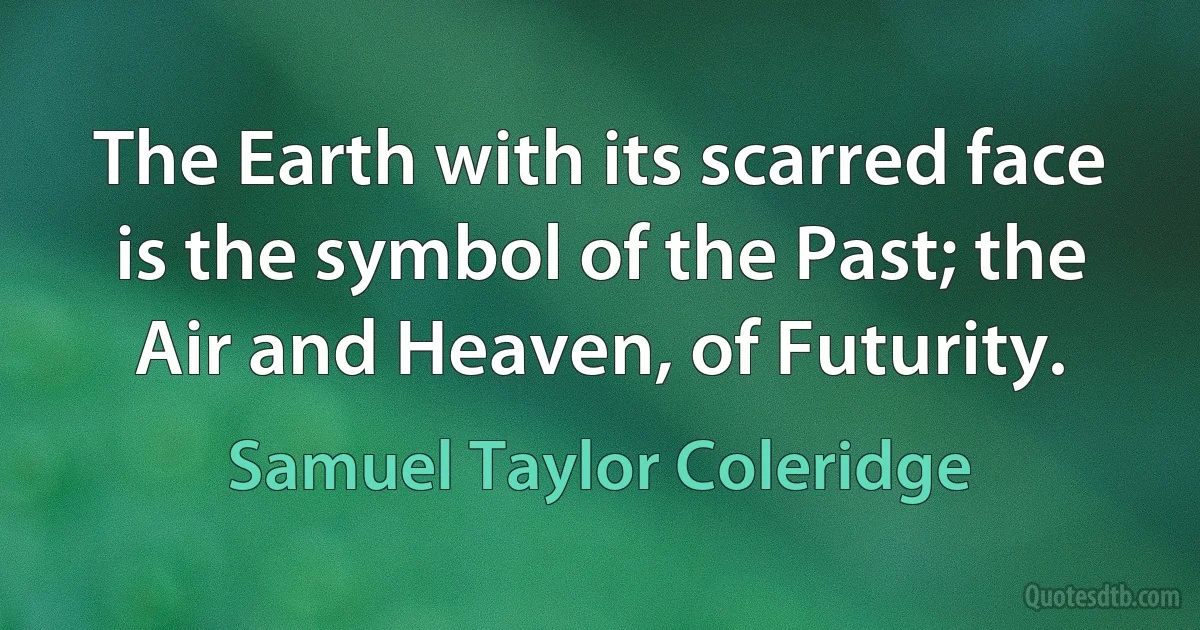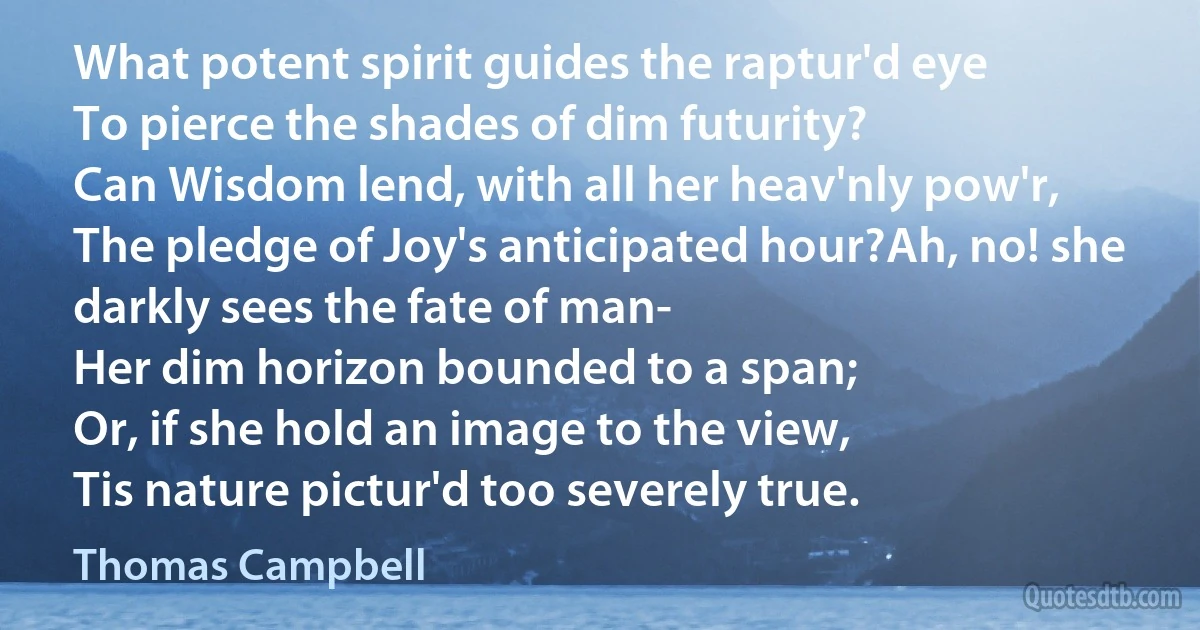Futurity Quotes
Poets are the hierophants of an unapprehended inspiration; the mirrors of the gigantic shadows which futurity casts upon the present; the words which express what they understand not; the trumpets which sing to battle, and feel not what they inspire; the influence which is moved not, but moves. Poets are the unacknowledged legislators of the world.

Percy Bysshe Shelley
Desire, even the basest, kind, required the notion of futurity if it was ever to come off. A man without a future, a dying man, was no longer desirable. And however stupid such a reaction might have seemed, Paul knew that if the situation was ever reversed, he would feel the same way about the woman. Desire would have turned into compassion. Which is tantamount to saying that desire would vanish into thin air.

Françoise Sagan
There are two futures, the future of desire and the future of fate, and man's reason has never learnt to separate them. Desire, the strongest thing in the world, is itself all future, and it is not for nothing that in all the religions the motive is always forwards to an endless futurity of bliss or annihilation. Now that religion gives place to science the paradiscial future of the soul fades before the Utopian future of the species, and still the future rules. But always there is, on the other side, destiny, that which inevitably will happen, a future here concerned not as the other was with man and his desires, but blindly and inexorably with the whole universe of space and time. The Buddhist seeks to escape from the Wheel of Life and Death, the Christian passes through them in the faith of another world to come, the modern reformer, as unrealistic but less imaginative, demands his chosen future in this world of men.

John Desmond Bernal
I had now reached that phase of the disorder where all sense of hope had vanished, along with the idea of a futurity; my brain, in thrall to its outlaw hormones, had become less an organ of thought than an instrument registering, minute by minute, varying degrees of its own suffering.

William Styron
The Game of Chess is not merely an idle amusement; several very valuable qualities of the mind, useful in the course of human life, are to be acquired and strengthened by it, so as to become habits ready on all occasions; for life is a kind of Chess, in which we have often points to gain, and competitors or adversaries to contend with, and in which there is a vast variety of good and ill events, that are, in some degree, the effect of prudence, or the want of it. By playing at Chess then, we may learn: 1st, Foresight, which looks a little into futurity, and considers the consequences that may attend an action ... 2nd, Circumspection, which surveys the whole Chess-board, or scene of action: - the relation of the several Pieces, and their situations; ... 3rd, Caution, not to make our moves too hastily...

Benjamin Franklin
Futurity should cease to be a predicament and should become a program: we should radicalize it to empower ourselves. That is the reason to take an interest in ways of organizing thought and society in ways that diminish the influence of what happened before on what can happen next. Such intellectual and institutional innovations make change in thought less dependent on the pressure of unmastered anomalies and change in society less dependent on the blows of unexpected trauma.

Roberto Mangabeira Unger
It would appear that they believe everything, both animate and inanimate - beasts, arms, ornaments, etc.- to possess immortal attributes, subject to resurrection in the world of spirits. However, did not their motives seem so well defined by the direct allusions to their notions of futurity, we might suppose, as is frequently urged, that the burying of property, slaves, etc., with the deceased, was only intended as a mark of respect; which, indeed, is hardly more irrational than the custom of interring costly garniture and appendages with the dead among us.

Josiah Gregg



